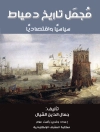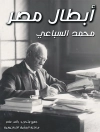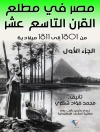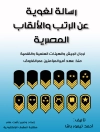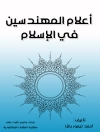This handbook aims to challenge ‘gender blindness’ in the historical study of high politics, power, authority and government, by bringing together a group of scholars at the forefront of current historical research into the relationship between masculinity and political power. Until very recently in historical terms, formal political authority in Europe was normally and ideally held by adult males, with female power being perceived as a recurrent aberration. Yet paradoxically the study of the interactions between masculinity and political culture is still very much in its infancy. This volume seeks to remedy this lacuna by considering the different consequences of the masculinity of power over two millennia of European history. It examines how masculinity and political culture have interacted from ancient Rome and the early medieval Byzantine empire, to twentieth-century Germany and Italy. It considers a broad variety of case studies from early medieval Iceland and late medieval France, to Naples at the time of the French Revolution and Strasbourg after the Franco-Prussian War, with a particular focus on the development of political masculinities in Great Britain between the sixteenth century and the present day.
Tabela de Conteúdo
1. Introduction: Masculinity and Politik; Christopher Fletcher.- 2. Power, Authority and Phallic Representations in Ancient Roman Society; Cyril Dumas.- 3. Between Bishops and Barbarians: The Rulers of the Later Roman Empire; Mathew Kuefler.- 4. The Rise and Fall of the High Chamberlain Eutropius: Eunuch Identity, the Third Sex and Power in fourth-century Byzantium; Georges Sidéris.- 5. Virile Women and Effeminate Men: Gendered Judgements and the Exercise of Power in Ottonian Empire c. 1000 CE; Laurence Leleu.- 6. Creating Kin, Extending Authority: Blood-Brotherhood and Power in Medieval Iceland; Pragya Vohra.- 7. Beyond Celibacy: Bishops, Power and Masculinity in Medieval Germany; Matthew Mesley.- 8. Masculinity and Political Struggle in the Cities of Castile at the End of the Middle Ages; Hipólito Rafael Oliva Herrer.- 9. ‘By This My Beard Which Hangs From My Face’: The Masculinity of the French Princes in the Armagnac-Burgundian Civil War; Hugo Dufour.- 10. Monarchy and Masculinityin Early Modern England; Susan Doran.- 11. Manhood and the English Revolution; Ann Hughes.- 12. A Man’s Sphere? British Politics in the Eighteenth and Nineteenth Centuries; Matthew Mc Cormack.- 13. ‘I Tremble Lest My Powers of Thought Are Not What They Ought to Be’: Reputation and the Masculine Anxieties of an Eighteenth-Century Statesman; Henry French.- 14. Antonio Canova’s Statue of King Ferdinand IV and the Gendering of Neapolitan Sovereignty; Allison Goudie.- 15. Psychological Androgyny, Romanticism and the Radical Challenge to Masculinity in England, 1790-1840; Victoria Russell.- 16. The Dominant and the Dominated: Power Relations and Intimate Authority in the Personal Diary of the Jurist Eugène Wilhelm (1885-1951); Régis Schlagdenhauffen.- 17. Eminently Queer Victorians and the Bloomsbury Group’s Critique of British Leadership; Dominic Janes.- 18. Masculinity, Political Culture and the Rise of Nazism; Christopher Dillon.- 19. Masculinities and Parliamentary Culture in Modern Britain; Ben Griffin.- 20. From Mussolini to Berlusconi: Masculinity and Political Leadership in Postwar Italy; Stephen Gundle.- Index.
Sobre o autor
Christopher Fletcher is a
chargé de recherche (Assistant Research Professor) in the French National Centre for Scientific Research (CNRS) affiliated to the University of Lille, France. His previous publications include
Richard II: Manhood, Youth and Politics, 1377-99 (2008) and
Government and Political Life in England and France, c. 1300-c.1500 (2015).
Sean Brady is Lecturer in Modern British and Irish History at Birkbeck College, University of London, UK. His research interest focuses on gender, sexuality, politics and religion in nineteenth and twentieth-century Britain and Ireland. His publications include
What is Masculinity? Historical Dynamics from Antiquity to the Contemporary World (Palgrave, 2011), co-edited with John H. Arnold.
Rachel E. Moss is Leverhulme Early Career Fellow at the Faculty of History at the University of Oxford, UK. Her current research project is on late medieval homosociality, and she is the author of
Fatherhood and its Representations in Middle English Texts (2013).
Lucy Riall is Professor of the Comparative History of Europe at the European University Institute in Florence, Italy. Her publications include
Garibaldi: Invention of a Hero (2007),
Under the Volcano: Revolution in a Sicilian Town (2013) and (edited with Valeria Babini and Chiara Beccalossi),
Italian Sexualities Uncovered, 1789-1914 (Palgrave, 2015).


